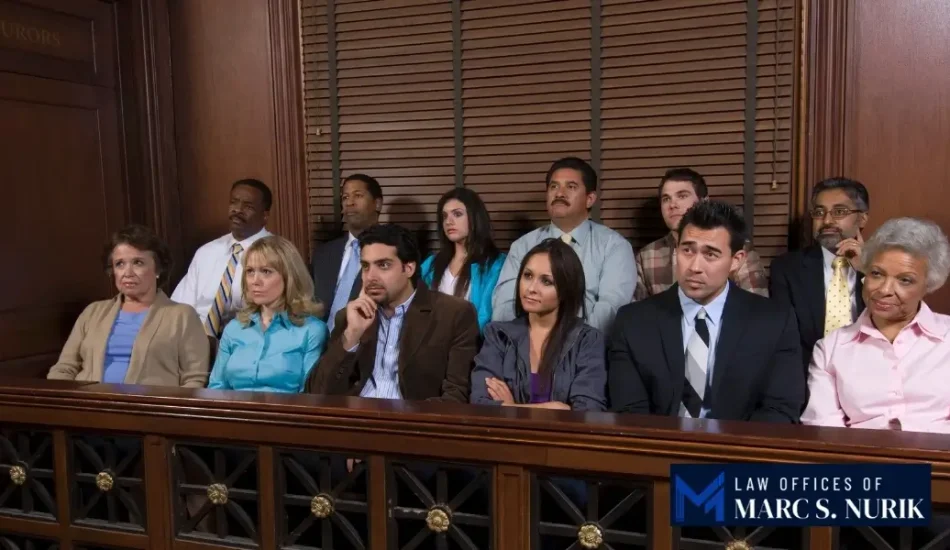Call Us Nationwide310-909-6828

Grand Jury investigations in California are an essential component of the criminal justice system. They serve as a mechanism for determining whether there is sufficient evidence to charge an individual with a crime. Grand jury investigations involve many key aspects, which are important to understand.
The primary purpose of a grand jury is to investigate potential criminal conduct. Acting as an investigative body, the grand jury gathers evidence and hears testimony to ascertain whether there is probable cause to believe that a crime has been committed.
This process is crucial because it ensures that individuals are not subject to criminal charges without sufficient evidence. If the grand jury concludes that there is enough evidence, it can issue an indictment, which is a formal charge that allows the case to proceed to trial.
The process of selecting grand jurors in California is similar to trial juries, as they are chosen at random to ensure a fair representation of the community. These jurors are summoned to serve for a specific term, which can vary from several months to a year.
Typically, a grand jury in California consists of 11 to 23 members, depending on the county. This composition is designed to bring a diverse perspective to the investigation and ensure that the decision to indict is made collectively.
One of the defining features of grand jury proceedings is their secrecy. These proceedings are conducted in private to protect the integrity of the investigation, safeguard the privacy of witnesses, and prevent any tampering with evidence or influence on the jurors.
Unlike in a trial, the suspect and their defense attorney do not have the right to be present during the grand jury proceedings. Only the jurors, the prosecutor, and the witnesses are present, ensuring that the investigation is conducted without outside interference.
The grand jury has significant investigative powers, including the unique authority to issue subpoenas. This power allows the grand jury to compel witnesses to testify and produce documents or other evidence that may be crucial to the investigation. Witnesses testify under oath, providing their accounts of events relevant to the investigation. Grand jurors can ask questions to clarify the facts and gather more comprehensive information.
The legal standard the grand jury must consider is whether there is probable cause to believe the suspect committed the crime. Probable cause means there is a reasonable basis for the charges based on the evidence presented. To issue an indictment, a majority of the grand jurors must agree there is probable cause.
Even though the accused does not have the right to be present or show evidence during the grand jury proceedings, they retain essential legal protections. The accused has the right to legal representation and can challenge the indictment in court if necessary. Witnesses called to testify before the grand jury also hold rights such as the ability to seek legal counsel. These protections help maintain the fairness and integrity of the grand jury process.
A grand jury investigation has many purposes within the legal system, primarily focused on evaluating potential criminal conduct and ensuring that charges are justified before proceeding to trial. The grand jury decides if there is sufficient evidence to support criminal charges, investigate evidence, protect citizens, protect the public interest, and more.
A grand jury investigation serves as a critical mechanism in the criminal justice system to ensure that there is a sufficient basis for bringing charges.
The grand jury process is a critical component of the criminal justice system in the United States. The process starts with choosing grand jurors through a random selection process and after they have been chosen, they engage in investigations over potential criminal conduct. The grand jury proceedings begin, and the prosecutor presents their case, after which the grand jury can issue subpoenas, witness testimony, and review documents presented by the prosecutor.
Then, there is a period of deliberation and voting. If the jury chooses to indict, the prosecutor drafts a formal indictment against the defendant, and then the post-indictment process begins.
A grand jury is used to investigate and accuse the defendant of a crime by being given the power to engage in a thorough investigation process with subpoena power, hearing witness testimony, and reviewing documents that influence the case. They evaluate the evidence of the case deliberately and determine whether it supports the allegations of criminal conduct.
Through its investigative powers and careful consideration, the grand jury protects both the rights of the accused and the interests of justice.
The two responsibilities of grand juries include investigation and indictment. Through their investigative powers, grand juries gather crucial evidence by fact-finding, using their subpoena powers, reviewing testimony and evidence, and assessing the validity of potential criminal charges. Their role in determining probable cause ensures that only cases with sufficient evidence proceed to trial, protecting the rights of individuals and upholding the integrity of the legal process.
Grand jury investigations are a pivotal part of the criminal justice system, serving as a bridge between the initial accusation and the formal charges that may lead to a trial. The Law Offices of Marc S. Nurik understands the complexities and nuances of grand jury proceedings, as well as the significant impact they can have on the lives of those involved. If you or a loved one is facing a grand jury investigation, it is crucial to have experienced legal representation by your side.
Contact us and set up a consultation to learn how we can help navigate this challenging process and work toward the greatest possible outcome.
4800 N. Federal Highway Suite 205B
Boca Raton, FL 33431
9350 Wilshire Blvd Suite 308
Beverly Hills, CA 90212